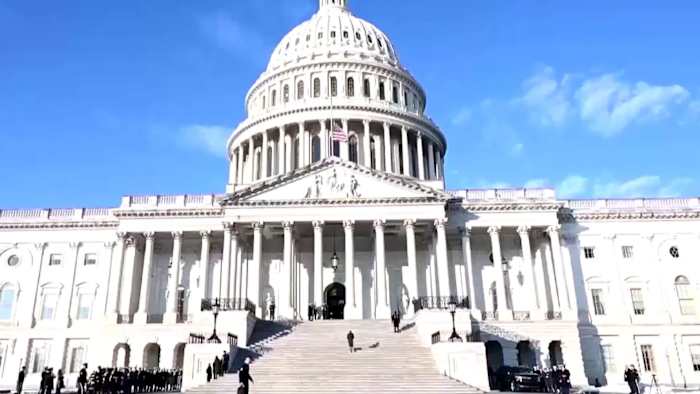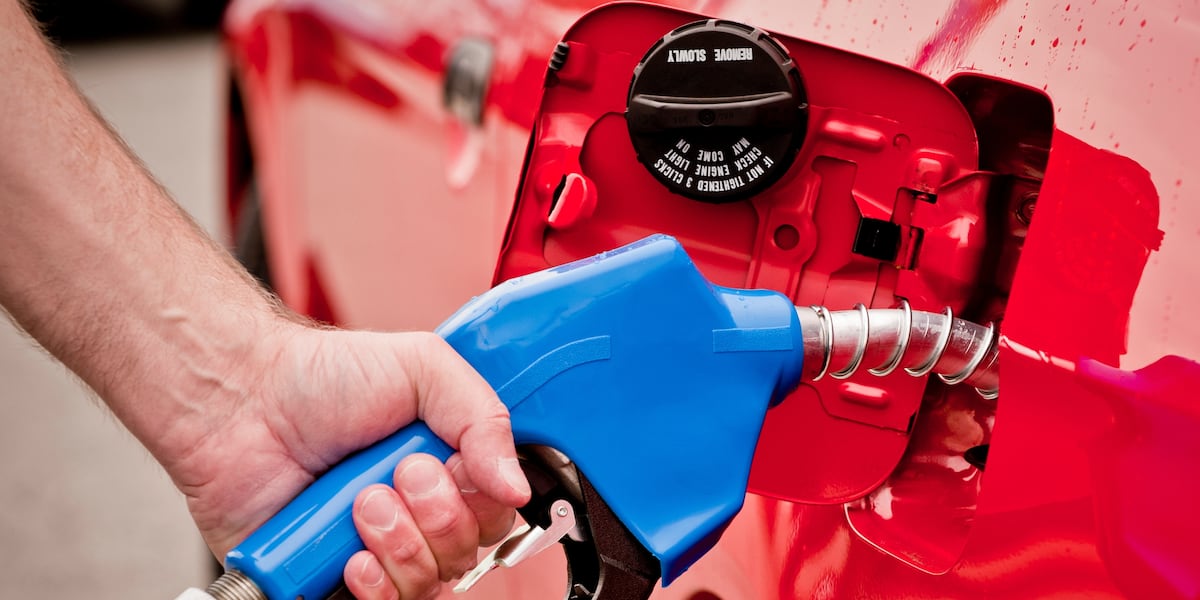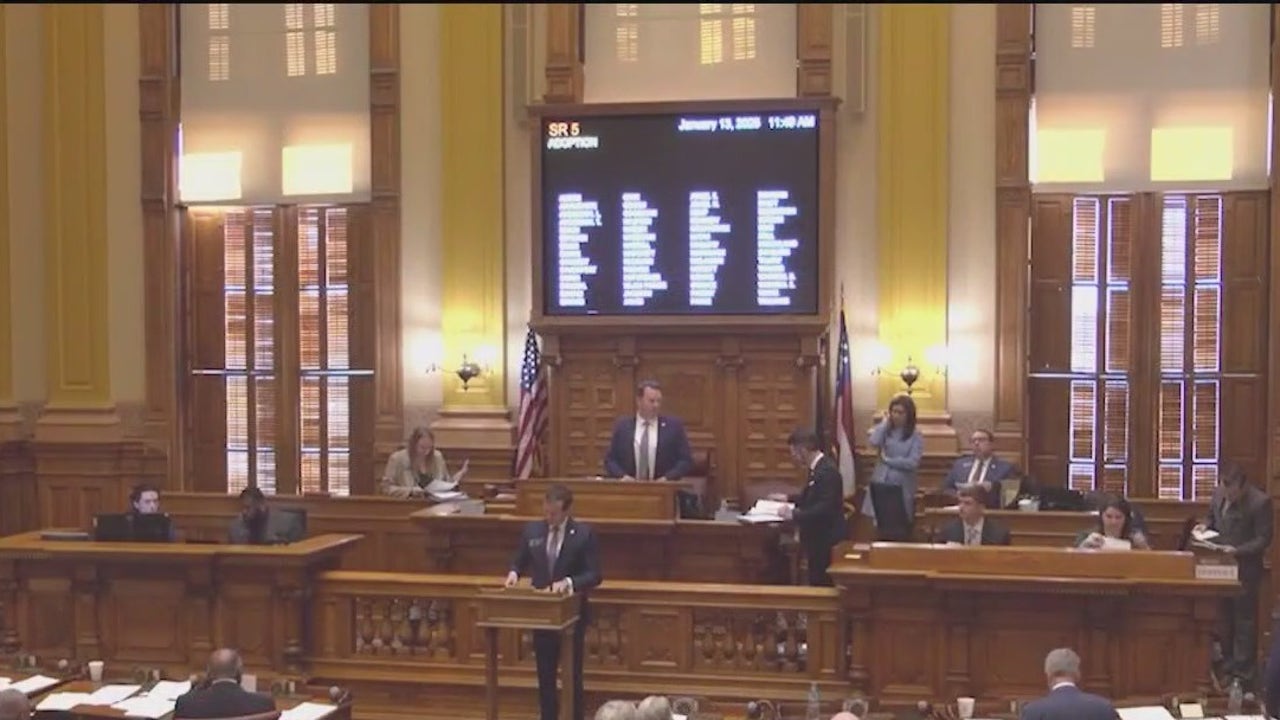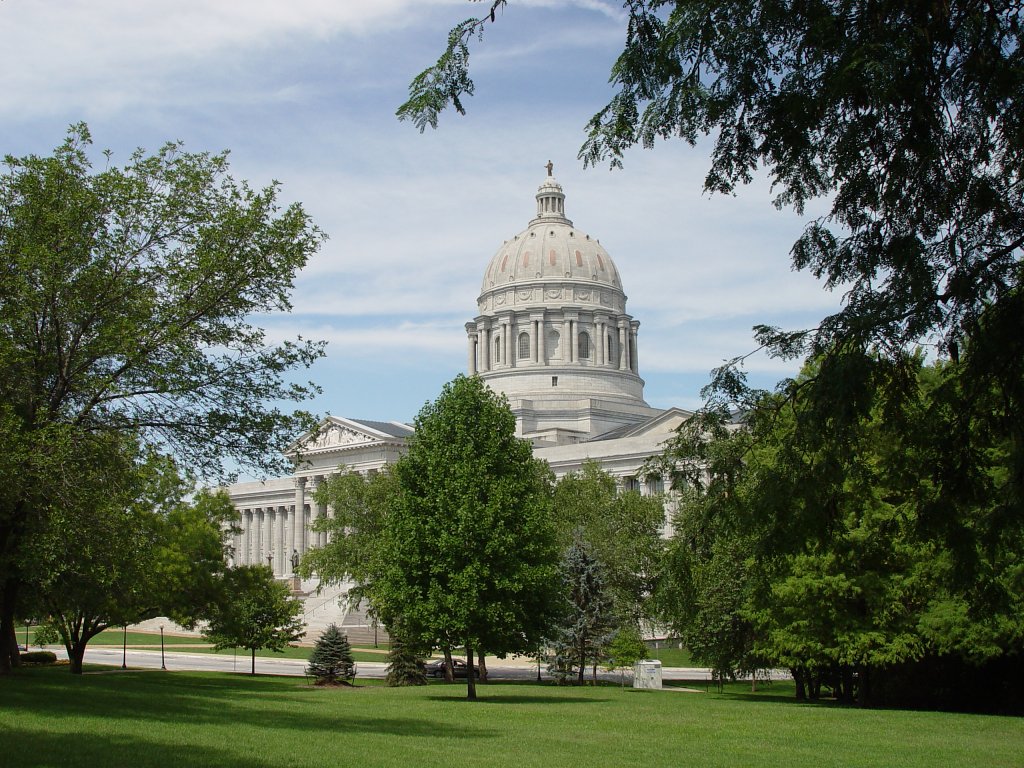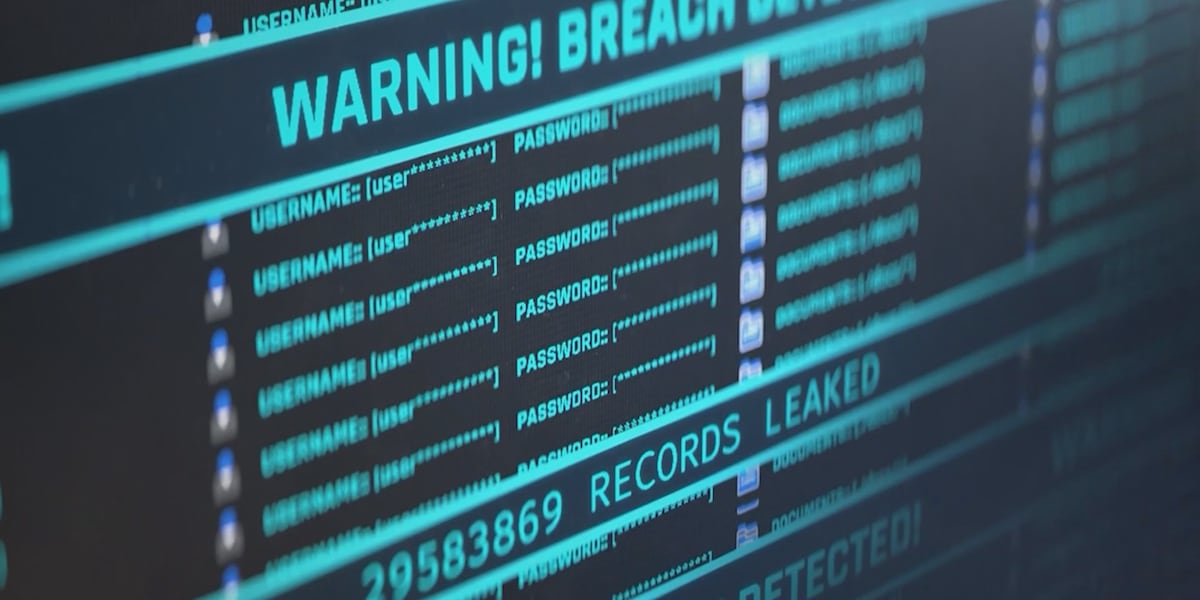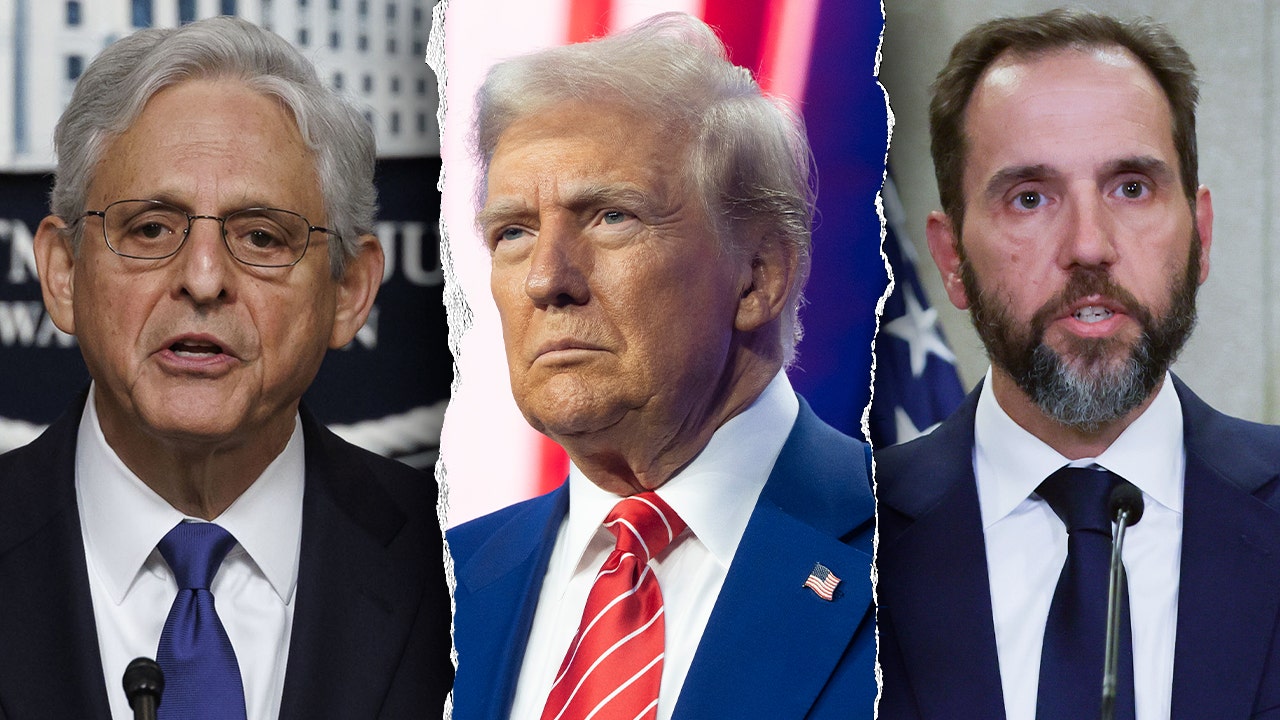World
Macron vows to build back factories, boost France’s economy shaken by pension protests

DUNKIRK, France (AP) — Building factories to boost job creation and make France more independent — that’s President Emmanuel Macron’s ambition for the French economy.
It’s a big challenge, as France reels from protracted protests, rising food and energy prices and other fallout from the Ukraine war.
While Macron woos investors to help “re-industrialize” France and reduce Europe’s dependence on China and the U.S., protesters follow him around the country, banging saucepans to protest economic injustice and his leadership.
More than 200 international business leaders are expected Monday at the ‘Choose France’ event staged at the palace of Versailles to promote foreign investment.
It follows a series of incentives announced by Macron last week to support innovative industries and transition towards greener technology. They include tax credits in fields like battery production, electric cars, hydrogen and wind power, as well as accelerating authorization for industrial projects.
“France is changing, is getting adapted to the course of the world and I believe that we’re following the right path, which is to reindustrialize the country, to be more sovereign and more respectful of the climate and biodiversity,” Macron said Friday during a visit to Dunkirk, in northern France.
Macron’s move comes after months of protests against his decision to raise the retirement age from 62 to 64. The unpopularity of the reform has weakened his government at parliament and hampered his economic strategy.
Unions have called for a new round of nationwide demonstrations on June 6. Meanwhile, opponents keep staging small protests, with people loudly banging pots and pans in places where Macron and government members are scheduled to travel.
Credit rating agency Fitch last month downgraded France’s sovereign credit rating, citing the protest movement. “Political deadlock and (sometimes violent) social movements pose a risk to Macron’s reform agenda,” the agency wrote.
In Dunkirk Friday, Macron made time for many selfies with workers from several local factories who attended his speech at Aluminium Dunkerque, one of the biggest aluminum production sites in Europe. None of them asked him about the retirement age and, in contrast with his previous visits across French regions, he didn’t walk through the city streets to meet with the crowd.
A heavy police presence was deployed in Dunkirk to keep potential protesters away.
Macron announced two major investments, both in the battery sector: one worth 5.2 billion euros ($5.7 billion) by Taiwanese group Prologium, the other one via a joint venture of China’s XTC with French energy giant Orano worth 1.5 billion euros ($1.6 billion). They are expected to create 3,000 and 1,700 jobs in the area respectively by 2030.
He seized the occasion to present the pension reform as part of a “package” that has already produced “results.” “If we want to be more competitive, we must work a little longer,” he said.
Since he took office in 2017, Macron has cut business taxes. He has made it easier to hire and fire workers and more difficult for the unemployed to claim benefits, amid other pro-business policies.
Macron said 300 new factories had been created since 2017 — two thirds in the past two years — while 600 had been shut down in the previous decade. The COVID-19 crisis and Ukraine war have shown that domestic industrial production is needed to strengthen the country’s sovereignty, he stressed.
For a fourth consecutive year, France was the European country that had attracted the greatest number of foreign investments, Macron said, citing a survey by EY last week.
The Paris-based Organization for Economic Cooperation and Development said Friday its statistics showed France’s unemployment rate in March reached its lowest level since 2001, at 6.9% — down from about 10% when Macron was elected. Still, the proportion of jobless people in France is higher than the average in the European Union, which is stable at 6%.
ProLogium CEO Vincent Yang told reporters in Dunkirk his group considered establishing facilities in the U.S., yet eventually chose the European Union as being more a favorable environment to develop innovative battery technology.
France was a relevant choice, Yang said, because “we need to have stable, low-cost, and green electrical power” and Dunkirk, one of the major industrial ports in Europe, already has battery-related facilities. The country relies on nuclear power for 70% of its electricity, offering a low-carbon alternative to fossil fuels.
Macron has been one of the most prominent advocates for a strong EU response to the $375 billion U.S. Inflation Reduction Act announced last summer by President Joe Biden to favor clean energy technology.
Earlier this year, the European Union presented plans to revamp its policies on promoting green technologies, unleashing subsidies and other financial incentives to ramp up domestic production.
“We’re going to better target our subsidies on low-emission European productions,” Macron said. “We’re not being protectionist but taxpayers neither in the U.S. nor China fund batteries made in Europe. So why should we be the only place in the world where taxpayers’ money goes to helping non-European products? We’re going to stop doing that.”
He also called last week for a “pause” on EU environmental regulations, arguing the bloc of 27 already imposes tougher rules than its competitors. The comments prompted immediate criticism from French and European Green politicians.
Macron later insisted he was sticking to his climate-related commitments, including all policies aimed at making the EU reaching carbon neutrality by 2050, but said, “Let’s not add more.”

World
Kate returns to cancer center where she was treated to offer gratitude to medical teams
LONDON (AP) — The Princess of Wales visited the hospital where she was treated for cancer on Tuesday, offering gratitude to the medical teams who helped her and give support to patients now undergoing treatment.
Kate, as she is commonly known, conducted the solo engagement at the Royal Marsden Hospital in London, a world-leading state-of-the art cancer center known for its pioneering research. It hadn’t been previously disclosed that she had been treated there.
“I was just saying, coming in the front entrance here, having made so many quiet, private visits, actually it’s quite nice,” she said after arriving at the hospital’s main entrance.
Her Kensington Palace office stressed that she would continue to return to public-facing engagements, albeit gradually. The palace described the visit as reflecting her “own personal cancer journey.’’
The royal family was hard hit by health concerns last year, beginning with the announcement in January 2024 that the king would receive treatment for an enlarged prostate and Kate would undergo abdominal surgery.
In February, Buckingham Palace announced that Charles was receiving treatment for an undisclosed type of cancer. Six weeks later, Kate said she, too, was undergoing treatment for cancer, quieting the relentless speculation about her condition that had circulated on social media since her surgery.
She announced in September that she had completed chemotherapy.
World
Malaysia is home to the world's largest hotel, with over 7K rooms for guests
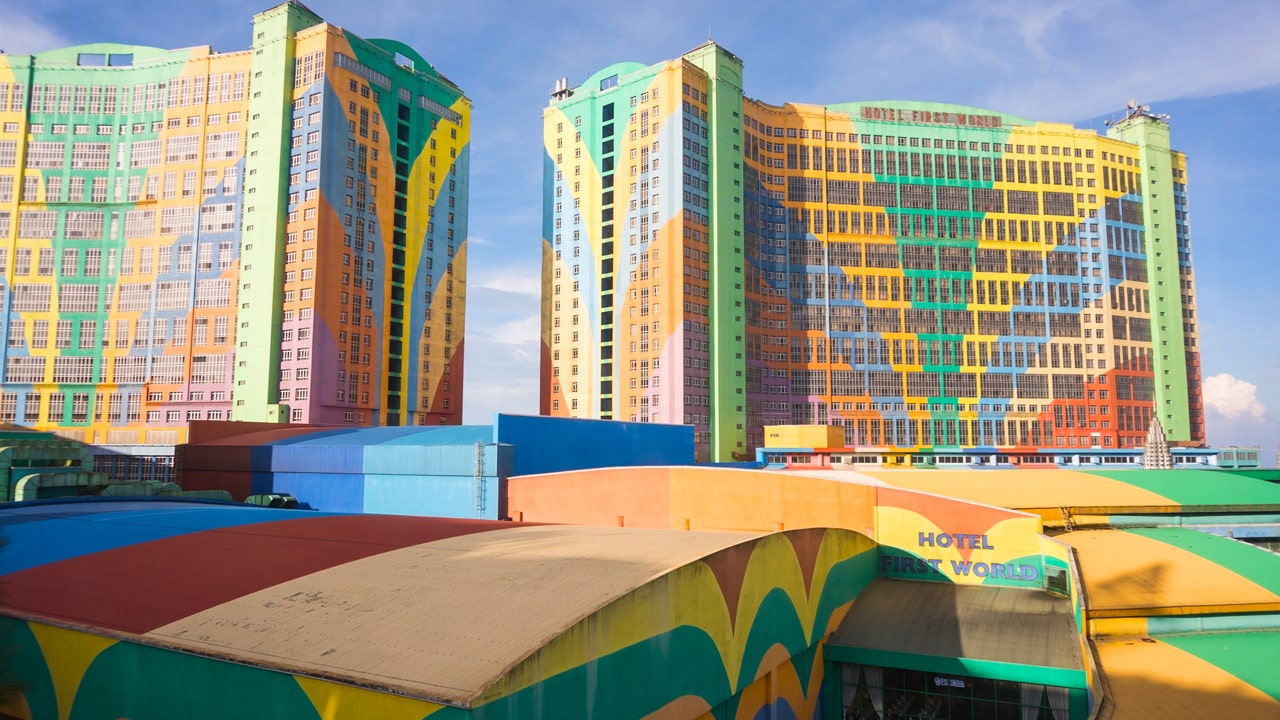
Hotels around the world hold impressive records for their height, age and impressive suites for guests. If you’re looking to stay at the world’s largest hotel, Malaysia is where you can find it.
Malaysia is home to the First World Hotel, which, according to Guinness World Records, is the largest hotel of any around the globe, for the number of rooms it offers.
The hotel is made up of 7,351 rooms, according to the Resorts World Genting website, among the three towers part of the property. The last time rooms were added to the property was 2015, taking the count from 6,118 to the current 7,351.
First World Hotel in Malaysia holds the Guinness World Record for the largest hotel by the number of rooms it contains. (iStock)
SET SAIL ON WORLD’S LARGEST CRUISE SHIP, WHICH CAN ACCOMMODATE OVER 7,000 GUESTS PER VOYAGE
There are quite a few different room options to choose from with a stay at First World Hotel, including a standard room, deluxe room, superior deluxe room, triple room and the world club room.
The smallest rooms in the hotel offer around 180 square feet of space, while the largest are laid out over about 430 square feet, according to the Resorts World Genting website.
There are three eateries on site. Guests can grab a bite at The Food Factory, The Junction or the Ice Cream Parlour, without leaving the comfort of the hotel.

First World Hotel is surrounded by forest, creating unique views for those who stay on the property. (iStock)
A LOOK AT THE WORLD’S LONGEST SNAKE WHICH MEASURES OVER 32 FEET, A RECORD-BREAKING SLITHERING SERPENT
Surrounding the hotel is the scenic rainforest, providing picturesque views for guests.
There are also additional offerings around the Resorts World property to explore.
First World Hotel is just one of several hotels part of Resorts World Genting. Among others are Crockfords, Resorts World Awana and Genting SkyWorlds Hotel.
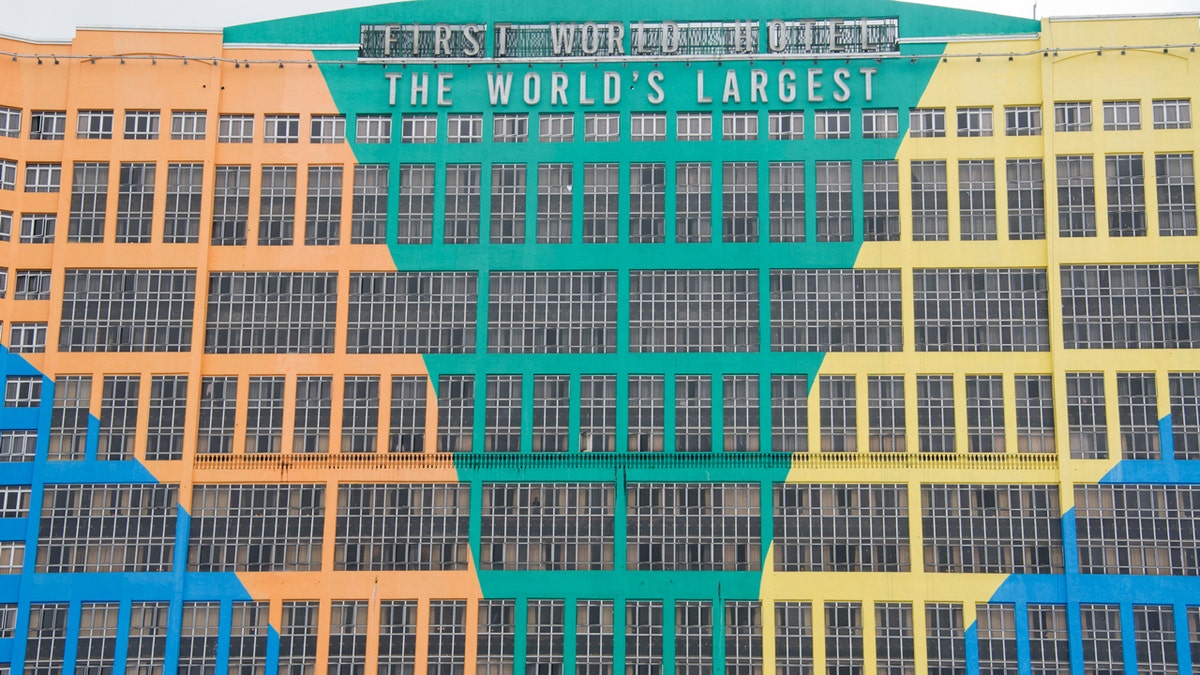
First World Hotel includes three towers, filled with different room options for guests to book. (iStock)
WORLD’S BIGGEST SPIDER COMES FROM NORTHERN SOUTH AMERICA, CAN MEASURE AS LARGE AS A DINNER PLATE
For those looking to add a little thrill to their travels, there are two different theme parks part of Resorts World Genting. There’s Skytropolis Indoor Theme Park, as well as Genting SkyWorlds Theme Park.
Skytropolis includes rides like bumper cars, tea cups, carousels and a Ferris wheel.
Genting SkyWorlds is made up of several different lands inspired by popular films. There’s Studio Plaza, Eagle Mountain, Central Park, Rio, Andromeda Base, Liberty Lane, Epic, Robots Rivet Town and Ice Age, according to the theme park’s website.
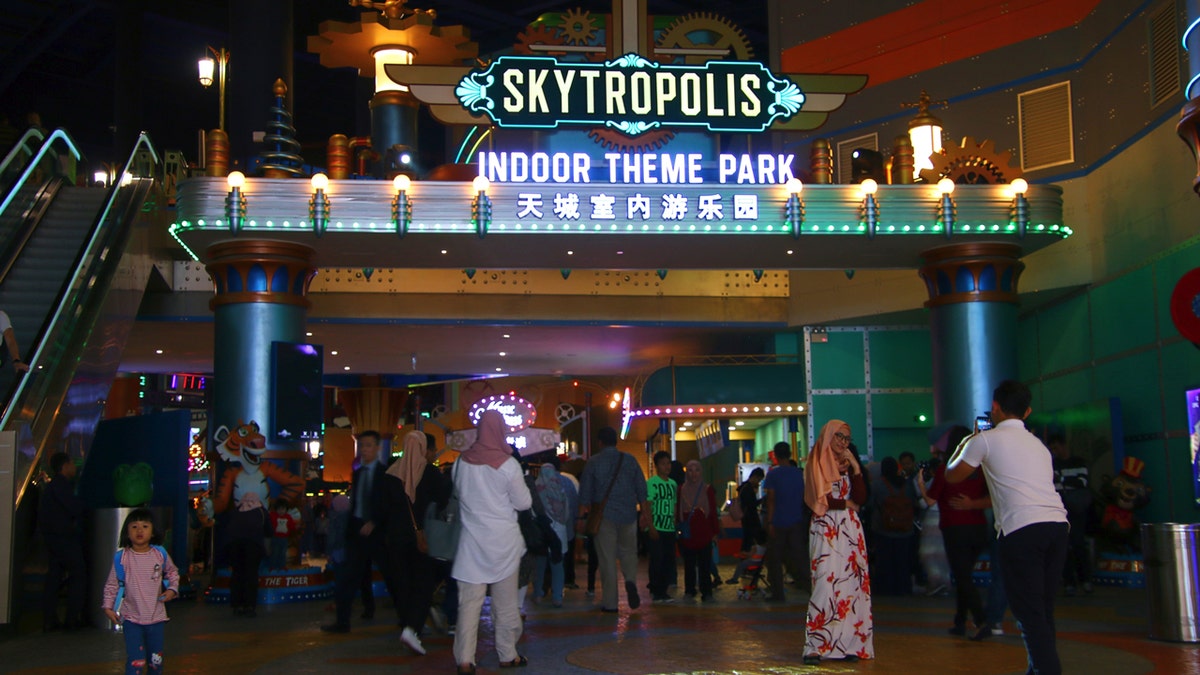
Resorts World Genting includes an outdoor and an indoor theme park for a thrilling trip. (iStock)
Besides the theme parks, there are lots of dining and shopping opportunities around Resorts World Genting.
As a whole, Resorts World has unique locations all around the world. There are several Resorts World locations in the United States, including in Las Vegas and New York City.
World
NATO to bolster Baltic military presence after power cables cut
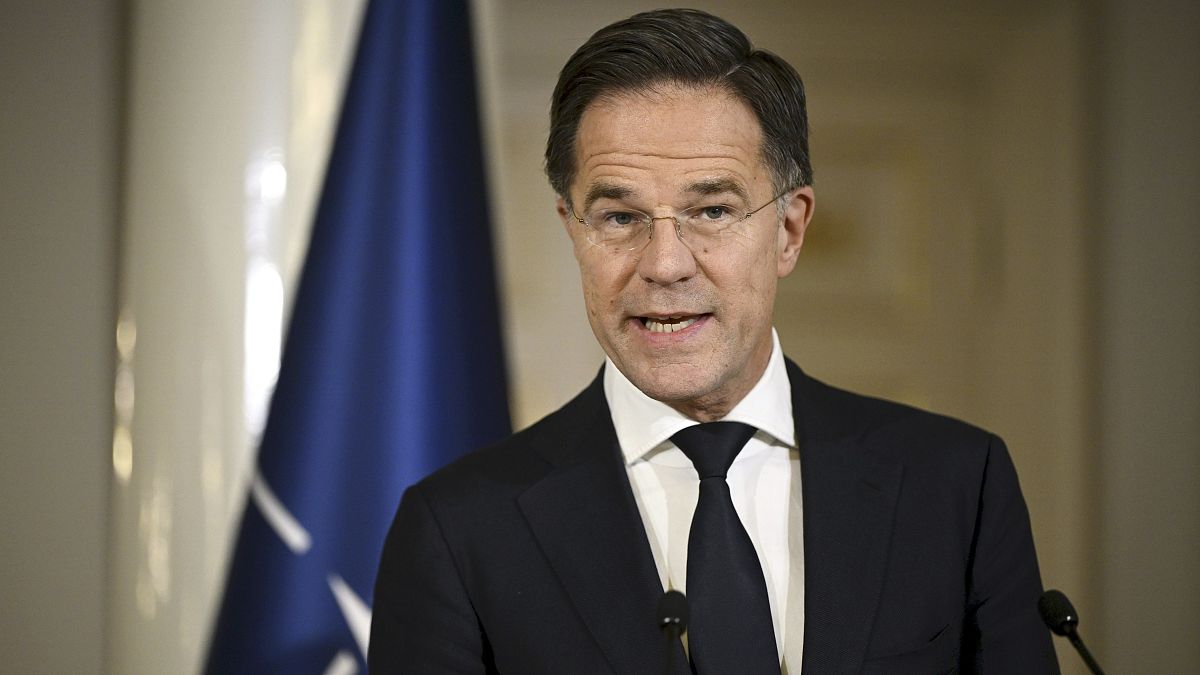
NATO’s Secretary General Mark Rutte pledged to send drones, frigates and aircraft to the region as he highlighted a concerted campaign of ‘cyber-attacks, assassination attempts and sabotage.’
NATO will increase its military presence and technological innovation in the Baltic Sea to protect critical infrastructure from sabotage, the head of the transatlantic alliance said at a Helsinki Summit on Tuesday.
Safeguarding infrastructure “is of utmost importance,” Mark Rutte told reporters, citing energy from pipelines and the 95% of internet traffic that is secured through undersea cables.
In the last two months alone, there’s been damage to one cable between Lithuania and Sweden, another between Germany and Finland, and others between Estonia and Finland.
Investigations are underway, but NATO’s Secretary General believes there is cause for grave concern.
“We have seen elements of a campaign to destabilise our societies through cyber-attacks, assassination attempts and sabotage,” Rutte said, with Russia the presumed culprit.
In response, NATO is increasing surveillance via a small fleet of maritime drones, while an enhanced surveillance operation called “Baltic Sentry” involves frigates and maritime patrol aircraft.
“We will respond decisively when critical infrastructure in our neighbourhood is at risk. Protecting it requires both national and international action,” Finnish President Alexander Stubb said.
Leaders of NATO countries in the Baltic region also pledged to push for robust enforcement, especially when it comes to the Russian shadow fleet of tankers used by Moscow to evade Western sanctions on oil sales.
“We need to make full use of the possibilities allowed by international law to take action against suspicious vessels,” Stubb stressed.
Last month, Finnish police seized a tanker carrying Russian oil, citing suspicions the ship had damaged the Estlink-2 power cable which connects Finland and Estonia by dragging its anchor along the seabed on Christmas Day.
“Ship captains must understand that potential threats to our infrastructure will have consequences, including possible boarding, impounding and arrest,” Rutte said.
Ahead of the meeting, Latvian President Edgars Rinkēvičs said monitoring was difficult in practice, as around 2,000 ships pass through the Baltic every day.
“Let’s face it, we can’t ensure 100% protection, but if we send a bold signal, I think such incidents will decrease or even stop,” Rinkēvičs told journalists in Helsinki.
Germany will also participate in the Baltic Sentry mission, Chancellor Olaf Scholz confirmed in separate remarks to reporters.
“We will participate with everything we have in the way of naval capabilities; that will vary, as far as the concrete possibilities of deployment are concerned,” Scholz said, when asked if Germany had made a specific promise on the contribution of ships or planes.
Additional sources • AP
-

 Politics1 week ago
Politics1 week agoWho Are the Recipients of the Presidential Medal of Freedom?
-

 Health1 week ago
Health1 week agoOzempic ‘microdosing’ is the new weight-loss trend: Should you try it?
-
/cdn.vox-cdn.com/uploads/chorus_asset/file/25822586/STK169_ZUCKERBERG_MAGA_STKS491_CVIRGINIA_A.jpg)
/cdn.vox-cdn.com/uploads/chorus_asset/file/25822586/STK169_ZUCKERBERG_MAGA_STKS491_CVIRGINIA_A.jpg) Technology5 days ago
Technology5 days agoMeta is highlighting a splintering global approach to online speech
-

 Science3 days ago
Science3 days agoMetro will offer free rides in L.A. through Sunday due to fires
-
/cdn.vox-cdn.com/uploads/chorus_asset/file/25821992/videoframe_720397.png)
/cdn.vox-cdn.com/uploads/chorus_asset/file/25821992/videoframe_720397.png) Technology6 days ago
Technology6 days agoLas Vegas police release ChatGPT logs from the suspect in the Cybertruck explosion
-

 Movie Reviews1 week ago
Movie Reviews1 week ago‘How to Make Millions Before Grandma Dies’ Review: Thai Oscar Entry Is a Disarmingly Sentimental Tear-Jerker
-

 Movie Reviews1 week ago
Movie Reviews1 week agoMovie Review: Millennials try to buy-in or opt-out of the “American Meltdown”
-

 Health1 week ago
Health1 week agoMichael J. Fox honored with Presidential Medal of Freedom for Parkinson’s research efforts

